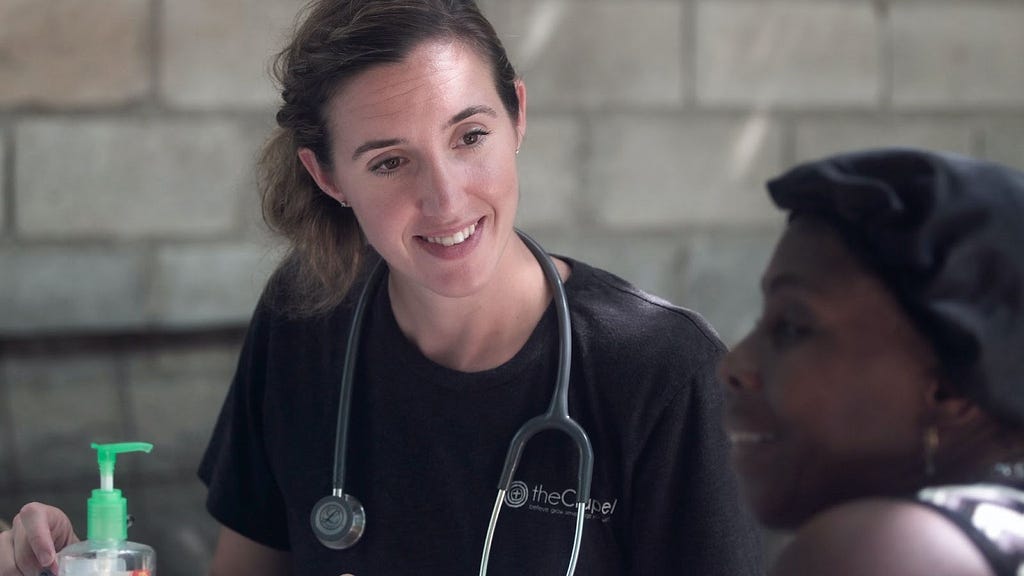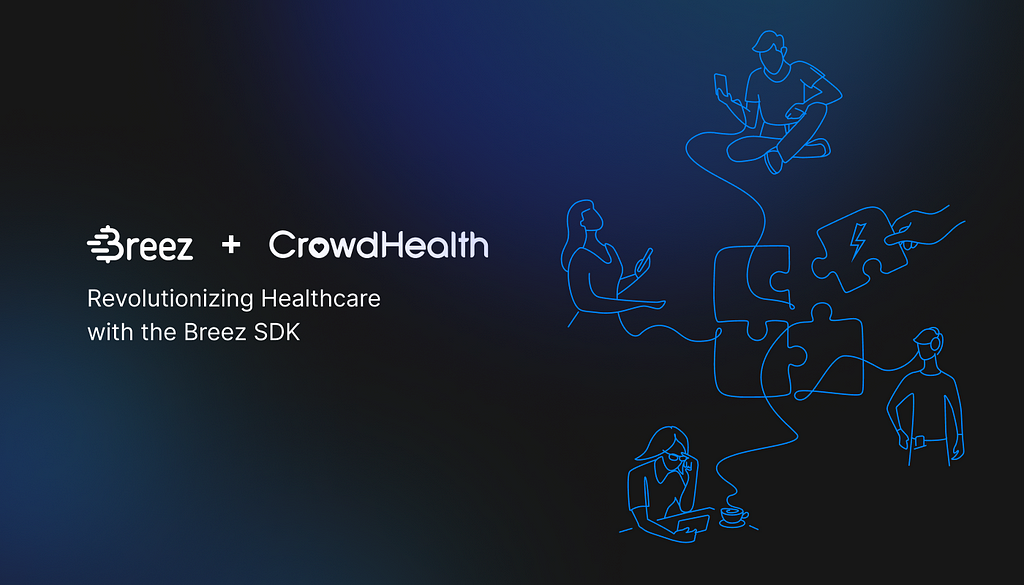Blogs & Articles: The Breez SDK Is Helping CrowdHealth Help Bitcoiners Help Each Other 🔗 21 weeks ago

- Category: Blogs & Articles | Breez Technology - Medium
- Author(s): Roy Sheinfeld
- Published: 5th December 2023 14:10
Bitcoin and bitcoiners are subject to some popular, unfair misconceptions. One is that all the talk about sovereignty and independence implies that bitcoiners are selfishly pursuing a beggar-thy-neighbor economic system. Another is that bitcoin is just a technological toy without real-world applications, like cryptographic fidget spinners.
CrowdHealth is demonstrating how wrong those views really are by solving a problem affecting millions, and the solution is to network their users into an effective, voluntary healthcare crowdfunding community. Using the Breez SDK, CrowdHealth is integrating Lightning payments, which CEO Andy Schoonover believes will make the service more effective, more efficient, and more accessible.
Not selfish. Not a toy.
Fixing Broken Healthcare
CrowdHealth starts from the observation that the USA spends more than twice the OECD average on healthcare per capita. Still, the last census showed 28 million Americans were uninsured, and 58.5% of private bankruptcies cited medical expenses as a contributor to their insolvency. When a health system overspends, and people are still going without necessary care or going broke just trying to get treatment, it is broken.
With a bitcoiner’s eye, CrowdHealth sees the solution in decentralization, transparency, networks, and aligning incentives. The idea is that users band together and cover each other’s health costs in the form of monthly crowdfunding requests. Alice needs a necessary procedure, say an appendectomy, which might cost up to $35,000. CrowdHealth first makes sure she’s not being overcharged, and then they organize small contributions from Bob, Carol, … Zoltan to help pay the bill. Those who contribute this month might need help down the road, and Alice will return the favor. And for its role in negotiating with the health providers and coordinating the transaction, CrowdHealth collects a monthly membership fee far below what insurers charge.
In game theory, we call this an assurance game, where everybody enjoys a net gain by sticking together. Crypto bros like to fantasize about the 3,3 outcome in a prisoner’s dilemma. CrowdHealth is realizing more like a 6,6 in a flat, decentralized network without a pyramid in sight. And it’s helping people live longer, healthier, and in concert with each other.
Improving on Perfection with the Breez SDK
CrowdHealth has been using fiat so far, and it’s worked pretty well. Users are getting treatment they can afford, when they need it, at prices far below the going rate. However, the system has limits, and those limitations are the result of the payment mechanism, not the basic idea.
One limit is settlement. When it comes to medical treatment, sooner is almost always better. Sometimes immediately is just barely soon enough. But fiat settlement times can take a few days, maybe even a couple weeks. But if Alice needs her appendectomy right now, the hospital is going to want payment when she’s discharged in a day or two.
Another is transaction fees. Virtually all of the crowdsourced contributions are only two or three digits. Transaction costs of $30 for outbound domestic wire transfers might eat 30% of a contribution.
A third is range. CrowdHealth operates in all 50 US states and Puerto Rico, but KYC and money-transmitter regulations mean that they cannot feasibly expand internationally with USD payments. Many health systems around the world are in little better shape than the American one, and many more people worldwide could benefit from the CrowdHealth model if it weren’t for regulatory hurdles.
Lightning solves all three problems. Settlement takes seconds. Transaction fees are proportional and fairly predictable (and on-chain payments are still possible for payments large enough to make Lightning uneconomical). And P2P payments require no licensed intermediary, allowing anyone anywhere to help others and get help when they need it.
Think about that. Since the Breez SDK runs non-custodial Lightning and takes only a few hours or days to integrate, it overcomes three major hurdles in CrowdHealth’s path to a global health revolution. Breez’s non-custodial Lightning solution is increasing the size of their market by 24x. If they were from another country with private health insurance — like the Netherlands — we’d be talking 450x. The Breez SDK is global scale in a box.

That’s why CrowdHealth is adding Lightning to their selection of payment tech, and they’ve opted for the Breez SDK to do it. According to Andy, the Breez SDK was the right choice because it provides everything they need in a single package. Channel and liquidity management all happen invisibly in the background, and adding the SDK to their stack took the developers “about a week.”
CrowdHealth already has a great business that benefits everyone in a very decentralized, networked, bitcoin-y fashion. The Breez SDK is just helping them to improve upon it by adding actual bitcoin.
Paying It Forward with Bitcoin
Although CrowdHealth is just rolling out Lightning payments, they have high, justified hopes. Perhaps because of the network’s structure, many of their users are already bitcoiners. They already have a community eager to persuade doctors to accept bitcoin, which would expand and strengthen the circular economy. Andy told us about one doctor in Austin who started accepting bitcoin and must now beat eager patients away with a tongue depressor.
Andy also suspects that doctors willing to accept bitcoin might provide better care. Choosing bitcoin indicates a willingness to innovate and think outside the flowchart. And since the network lets patients pay doctors directly, those doctors are working for their patients on a peer-to-peer basis, not as drones for faceless insurance companies.
Integrating Lightning has also been very good for CrowdHealth. Attrition among bitcoiner users is half that of the general population. Bitcoiners are loyal, yo, especially when they’re helping other bitcoiners. And this community of bitcoiners has already helped CrowdHealth grow prior to the launch. According to Andy, “we would not have been able to raise our last round of capital without bitcoiners.”
As you might have noticed through our Building on Lightning series, we’re growing too, and businesses like CrowdHealth are helping us do it. We’re going to help them and their users by maintaining our commitment to bitcoin and seamless user experiences. And as soon as we can, we’re going to implement those asynchronous and recurring payments Andy’s been asking us about.
Keep it up. This is why we’re all here.
The Breez SDK Is Helping CrowdHealth Help Bitcoiners Help Each Other was originally published in Breez Technology on Medium, where people are continuing the conversation by highlighting and responding to this story.







